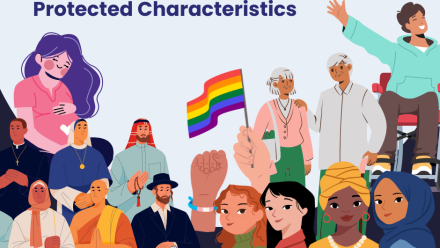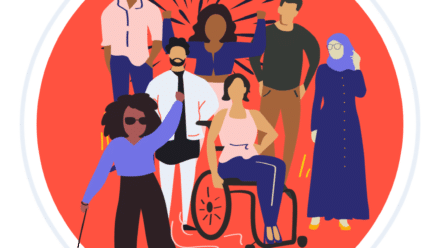Disability Rights and Services, Post Brexit
29th June 2016 by Catia Neves
Last Friday’s EU Referendum result shocked the country, no matter how you voted. We’re already starting to feel the effects. When Article 50 is triggered, and we leave the EU, there could be even greater consequences for Disabled people.
Worrying Impact on NHS & Social Care
Our NHS is dependent on the input and work of EU migrant workers. You’re more likely to be treated by an immigrant than you are to be before them on a waiting list.
A huge number of EU migrants work in our medical and care sectors:
- 5% of NHS staff are from the EU – that’s around 55,000 professionals, including doctors, nurses, paramedics, pharmacists, support staff, and admin.
- In adult social care, 5% of workers are from the European Economic Area, about 72,500 out of 1.45 million.
- EU immigrants across the UK comprise 10% of registered doctors and 4% of registered nurses. are citizens of other EU countries, according to the English Health Service’s Electronic Staff Record.
So what does this mean for our vital services?
Blocking free movement of labour could cause a staffing crisis since many roles are filled by EU workers. In recent years, the NHS has struggled to recruit enough nurses. However, about 7,000 EU nurses join the NHS each year, helping to meet its needs and provide better care.
Some staff might leave before new migration rules kick in, which could stop them from working in the UK with the same rights. This uncertainty risks patient safety and NHS service quality, echoing past issues like the Junior Doctors’ contract change.
Protecting the free movement of labour, a key part of the Brexit campaign is crucial for our healthcare services. But the NHS also relies on a strong economy to thrive. Economic growth and sustainability need access to the single market, as Angela Merkel stated. So Brexiteers might find themselves in a tough spot!
“The social care sector’s ability to recruit and retain a workforce is a major concern,” says Mike Padgham, Chair of the UK Homecare Association.
Economic Impact of Brexit
Austerity and recessions hit Disabled people hardest, and this economic downturn won’t be any different.
Since the Leave vote, the British economy has suffered. Global stock markets lost over $2 trillion, and the pound’s value dropped to a 31-year low.
This economic strain affects everyone:
- Mortgages, pensions, wages, and house prices will all feel the strain.
- Taxes may rise, and cuts deepen. Councils face lower budgets, risking already stretched services.
These cuts disproportionately affect Disabled communities reliant on vital services, facing increased taxes, reduced wages, and fewer job opportunities.
Several experts have predicted that the economic shock of leaving the EU would cause unemployment to rise in the UK. That would reduce the pressure for wage growth.
With the Treasury estimating that wages will be between 2.8% and 4% lower at the point of maximum impact, with a typical worker at least £780 a year worse off [4]. The Treasury estimates workers could be £780 a year worse off.
Disabled people already struggle with welfare, employment, and living standards cuts. This situation is deeply worrying.
Cuts to Research and Innovation Funding
The UK will lose crucial funding for research and innovation post-Brexit, slowing progress in NHS and universities.
Research into medicine and assistive technologies is vital for improving lives. EU funding like Horizon 2020 now hangs in the balance.
Projects benefiting UK Higher Education and NHS, like the Innovative Medicines Initiative, face funding risks. These innovations benefit us all.
Disabled Focused Projects
There are many projects led by and for disabled people that have been funded by the EU that wouldn’t exist otherwise. For example the power-hockey club in Leeds (see BBC video below). This was started using money from the European Social Fund (ESF), which, during 2014–2020, alongside the European Regional Development Fund, is investing around €11.8 billion across the UK in social projects.
http://www.bbc.com/news/uk-politics-eu-referendum-36526282
The European Social Fund supports job creation, improving living standards and inclusivity, particularly for marginalized groups like Disabled people.
Human Rights Protections
Leaving the EU means losing access to protections like the European Charter of Fundamental Rights (CFR). Untangling EU laws from British law will be complex and could weaken Disability rights protections.
However, existing UK laws like the Equality Act 2010 and Human Rights Act still protect against discrimination. The UN Convention on the Rights of Persons with Disabilities also safeguards Disabled people’s rights.
Concluding Statement We must protect the rights and voices of Disabled people, who’ll be hit hardest by Brexit. Organizations like Disability Rights UK and Disabled People Against Cuts (DPAC) fight for Disability rights.
We must shield our communities from further cuts and damage to welfare. We’ve fought for equality for a long time, and we’ll keep fighting until our voices are heard.


